Michigan's largest, most diverse county could prove decisive in 2024 presidential election
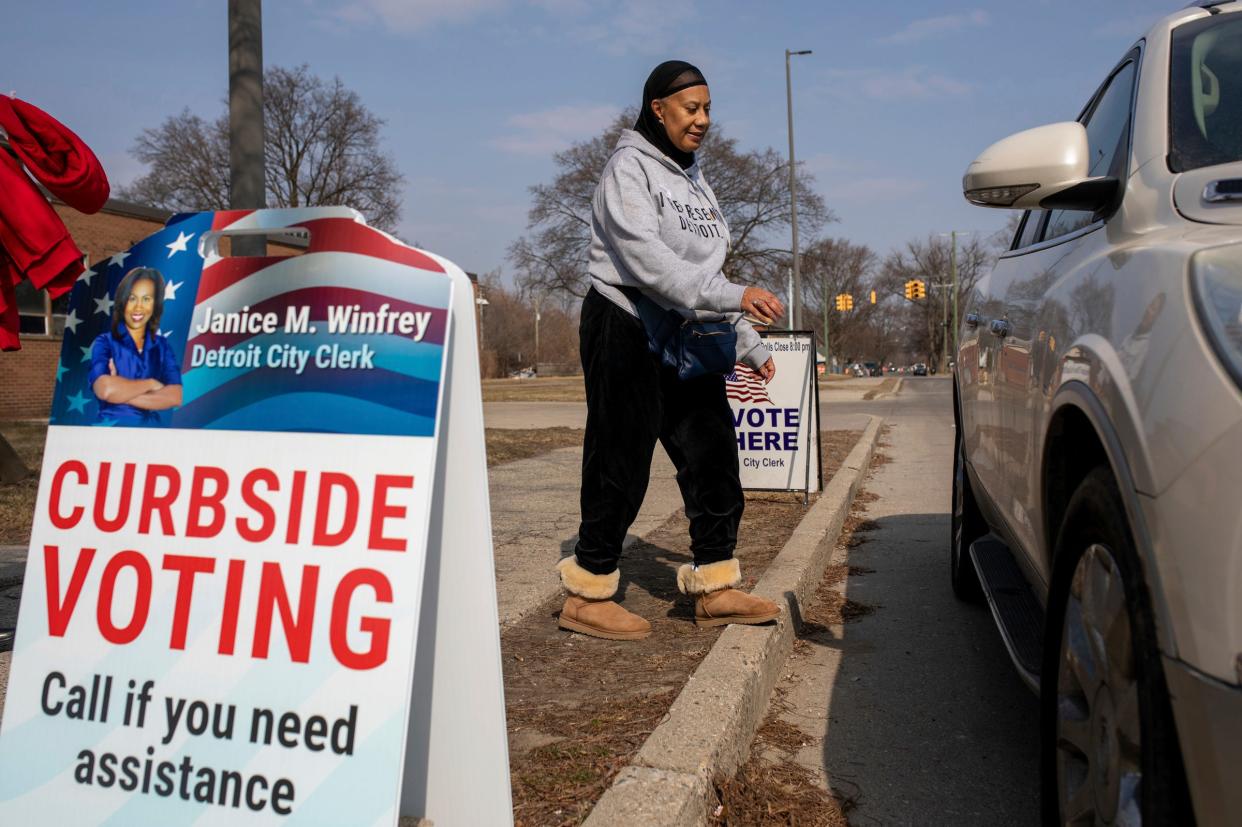
Wayne County stands out as Michigan's most racially and ethnically diverse. And how it votes — or rather how many vote — could decide the presidential election.
Michigan's largest county provides Democratic candidates their biggest voting bloc. But if the county represents the heterogeneity of the party's coalition, it also demonstrates the divides tearing it apart.
No doubt, Wayne County will deliver a large chunk of Democratic votes this fall. The last time a Republican presidential candidate won the county was in 1928 when Herbert Hoover carried it. In 2020, President Joe Biden won 68% of its votes. Some residents have already turned out enthusiastically to keep the president in office for another term.
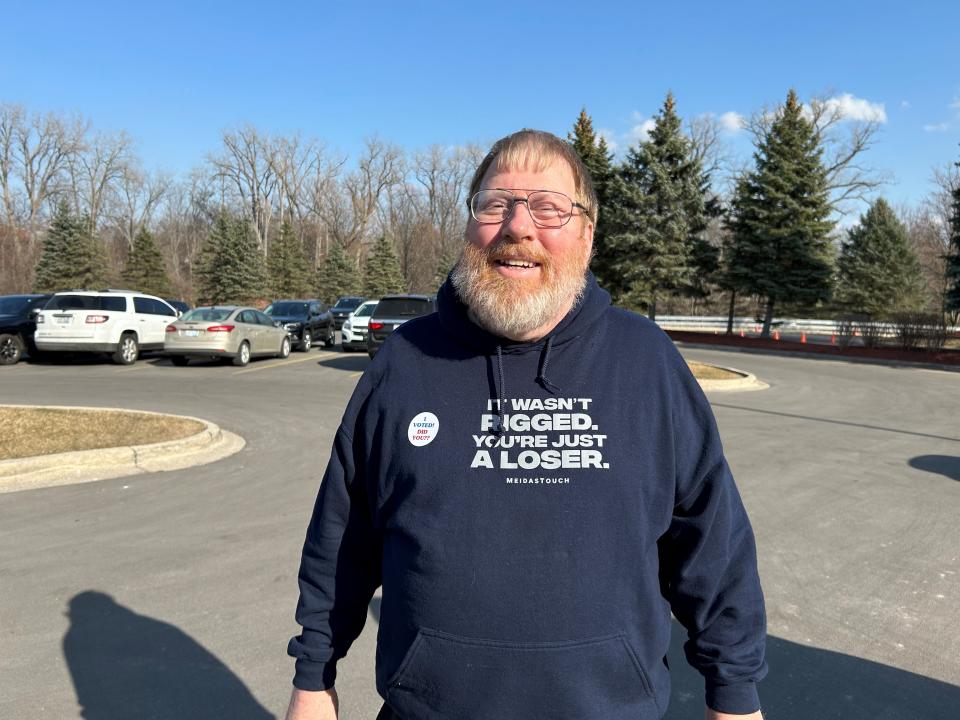
When retired auto mechanic Brian Jourdan, 65, of Detroit, went to go vote at Greater Grace Temple on Detroit's west side during Michigan's presidential primary in February, he decided to dress for the occasion. "It wasn't rigged. You're just a loser," read the text on his blue sweatshirt in reference to former President Donald Trump's misinformation campaign to overturn his 2020 loss. "I'm ashamed that guy was ever our president," said Jourdan of Trump.
"Biden's done me a lot of good," he said, pointing to lower costs for his prescriptions that have saved him money. But he did register one complaint. "I don't care for the Israel thing that much if I was going to be critical of him," he said. It seems to him like the Palestinians are "always getting screwed."
While Democrats dominate Wayne County, it has its Republican pockets too, particularly Downriver where Trump drew 93% of his votes from the county in 2020, according to a review of election data compiled by the Massachusetts Institute of Technology Election Data and Science Lab. But Trump found his most ardent supporters elsewhere. Of all municipalities in Wayne County, Grosse Pointe Shores delivered the highest vote share for Trump with 65% support. The small community on Lake St. Clair — home to the Edsel Ford family mansion — boasts the county's highest median household income.
But it's the state's biggest city that could prove decisive this fall.
If the path to the White House runs through Michigan, then the path through Michigan runs through Wayne County, according to longtime Democratic operative Jonathan Kinloch. "And the superhighway that runs through Wayne County is Detroit," said Kinloch, who currently serves as a Wayne County commissioner and chair of the 13th District Democratic Party. He also served on the Wayne County Board of Canvassers in 2020 when the GOP members initially refused to certify the results and considered excluding Detroit from the vote total.
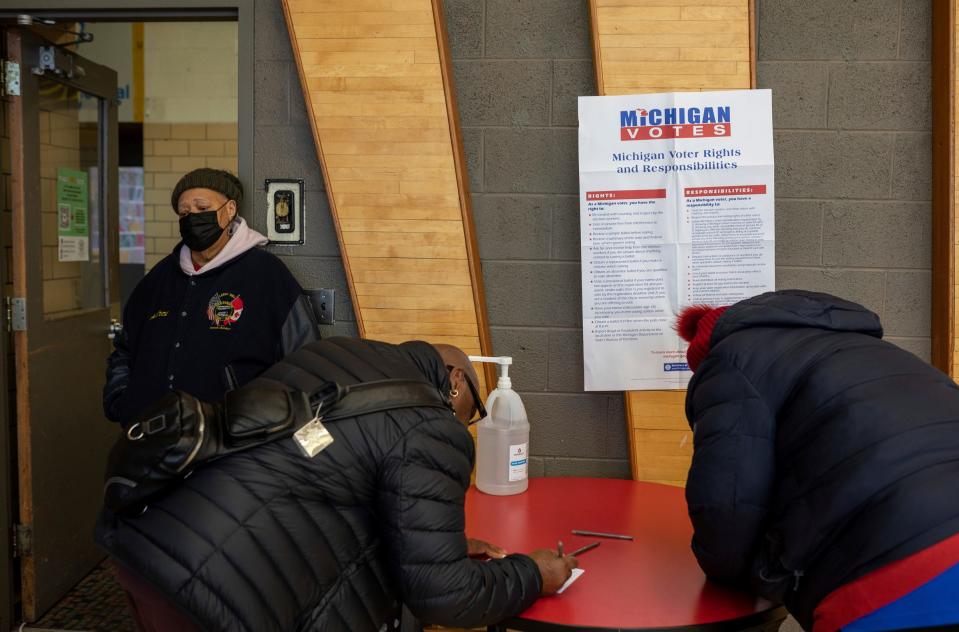
The upcoming presidential election could hinge on whether Black voters in Detroit turn out, he said. "Michigan is red until Black folks turn it blue," he said.
But with fractures in the Democratic coalition over Biden's response to Israel's military campaign in Gaza, turning out more Democratic votes in Detroit for the incumbent may be needed to make up for Democratic voters who stay home or skip the top of the ticket to protest the president's support for Israel, according to Kinloch.
Biden's support for Israel could unravel his 2020 coalition
Perhaps nowhere else in the U.S. illustrates more clearly the political fallout from Biden’s support for Israel than Wayne County. The county has the largest concentration of residents of Middle Eastern and north African descent of any county in the U.S., according to census data.
In the Democratic presidential primary, some voted "uncommitted" to pressure Biden to demand a permanent cease-fire. The "uncommitted" vote beat Biden in the primary in Dearborn, Dearborn Heights and Hamtramck, cities home to large Arab American and Muslim communities.
For those who don't have family or friends in the Middle East personally impacted by the violence, many Arab Americans have neighbors who do or have themselves lived under occupation, said state Rep. Alabas Farhat, D-Dearborn, in a January interview.
Biden's foreign policy decisions present a challenge to repeating past efforts by Arab Americans in Michigan to turn out the vote for Biden, he said.
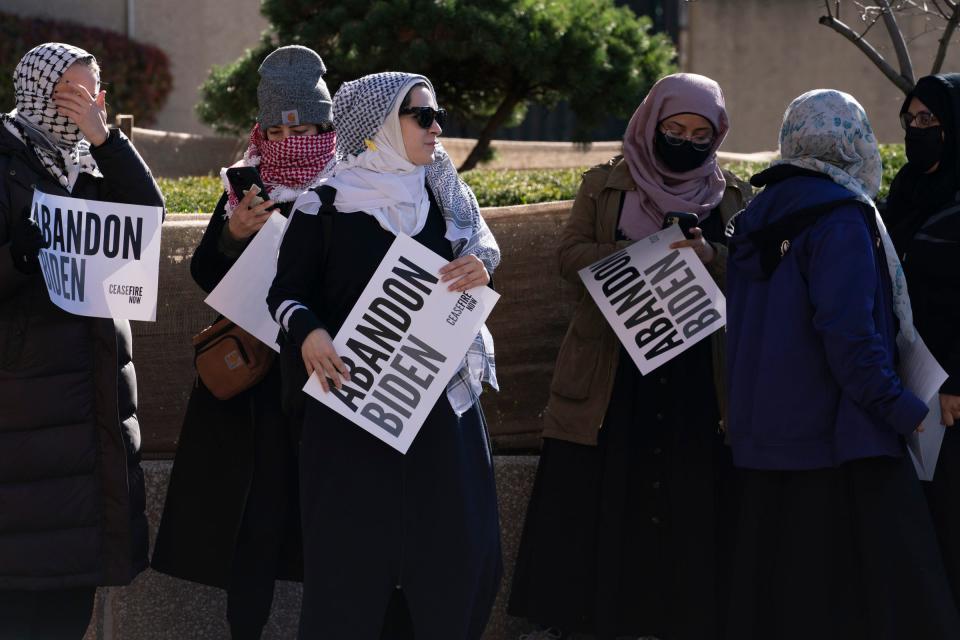
Farhat said he plans to remind voters of the sharp differences in Biden and Trump's domestic policy vision, noting Trump favors a Muslim ban. But he hopes the Biden campaign does more to make those conversations with voters easier heading into the fall.
"Simply how bad the alternative is, isn't enough when the current reality, thousands of people that look like us are being murdered," he said. Farhat later endorsed the "uncommitted" campaign in the presidential primary to protest Biden's Gaza policies.
Fears over second Trump presidency
But the possibility of a Biden-Trump rematch has some voters fired up to prevent a second Trump term.
Aringtor Hicks, 62, of Canton Township, calls himself an independent but he typically votes for Democrats and has donated to Democratic campaigns in recent years. The last time he voted for a Republican president was 1984 when he said he supported Ronald Reagan. More recently, he wrote a check to Republican John Kasich after the last election with a note urging him to consider running for president again.
Hicks — who went to college with $50 in his pocket and now works in property management — says he supports some of Trump's fiscal policies. But Trump's authoritarian rhetoric – such as his comment that he would be a dictator for "one day" — concerns him. "That scares me. That scares me," he said. "And especially as a Black male, I don't want to live in a regime like that."
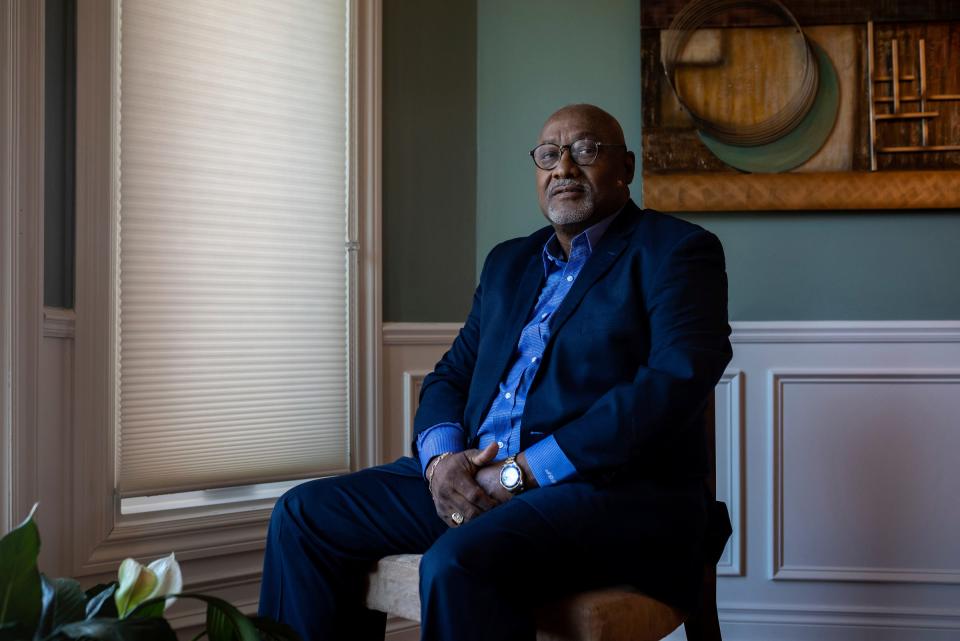
But Hicks doesn't see other Black voters necessarily preventing Trump's return to the White House. Citing "barbershop talk in the Black community," he said he's observed Trump gaining momentum among Black men with some heralding COVID-19 relief checks they received when Trump was in office and siding with the former president amid his mounting legal troubles.
Still, despite shifts in the Democratic coalition that could pose a challenge for Biden, Hicks foresees Trump losing the election. "I think at the end of the day, the suburban white women are going to come in and save the day," he said.
Suzanne Lewis, 71, of Plymouth Township, another self-identified independent voter, is similarly troubled by the prospect of another Trump presidency. "I've never been in a position where I've been afraid that the person that gets into the office —and I'm not just talking president, I'm talking all of them — is reckless," she said.
She expressed staunch opposition to Republican efforts to restrict abortion access and ban books. "In my opinion, if a book's been published and you don't want your kid to read it, make sure you know what they are reading," she said.
"Those are the issues that get to me," she said. "And I'd really, really like to educate a few people on the Bill of Rights and how that works." Lewis, who went to law school, has followed the legal drama of this election cycle closely such as a recent case before the U.S. Supreme Court over whether states could remove Trump's name from the ballot.
The threat she sees Trump posing to the constitutional order was one of the many reasons she said she opposes the former president and voted for Biden in Michigan's primary. "It's as much against Trump as anything else," she said.
Looking for more on Michigan’s elections this year? Check out our voter guide, subscribe to our elections newsletter and always feel free to share your thoughts in a letter to the editor.
Contact Clara Hendrickson at [email protected] or 313-296-5743. Follow her on X, previously called Twitter, @clarajanehen.
This article originally appeared on Detroit Free Press: Michigan's Wayne County could be decisive in Biden vs. Trump election
